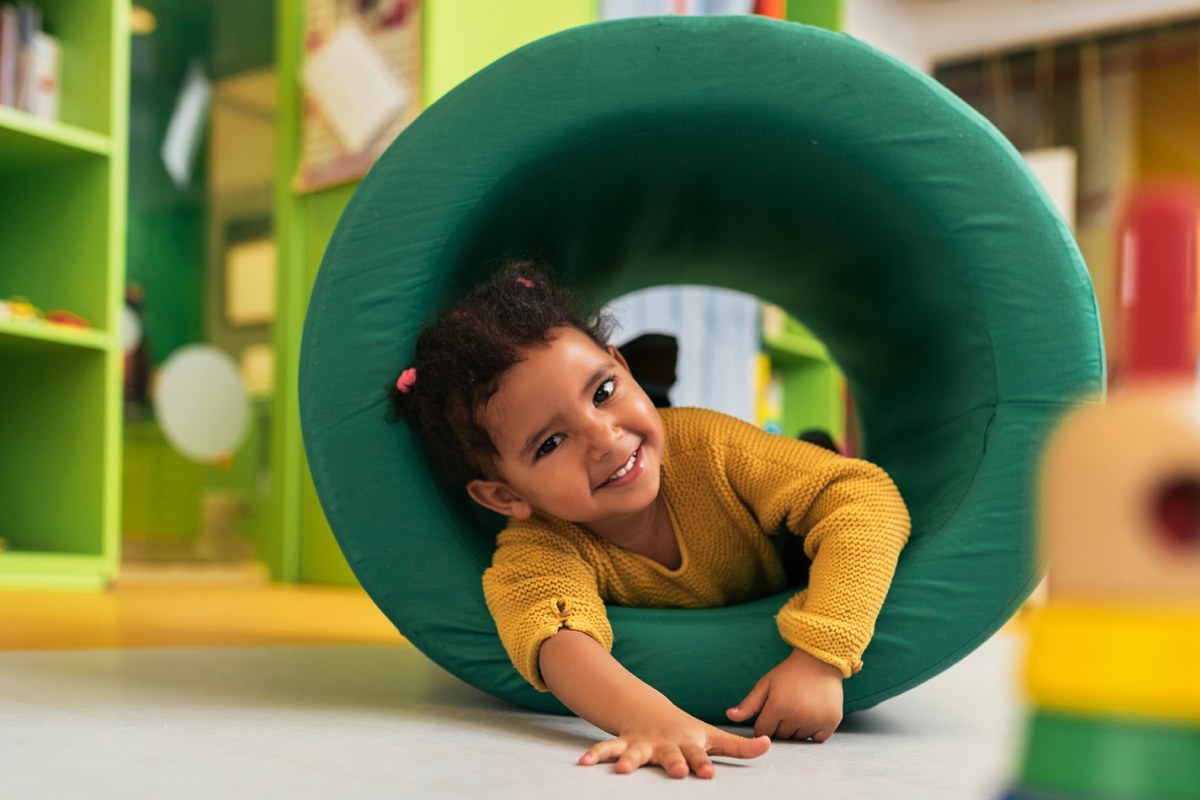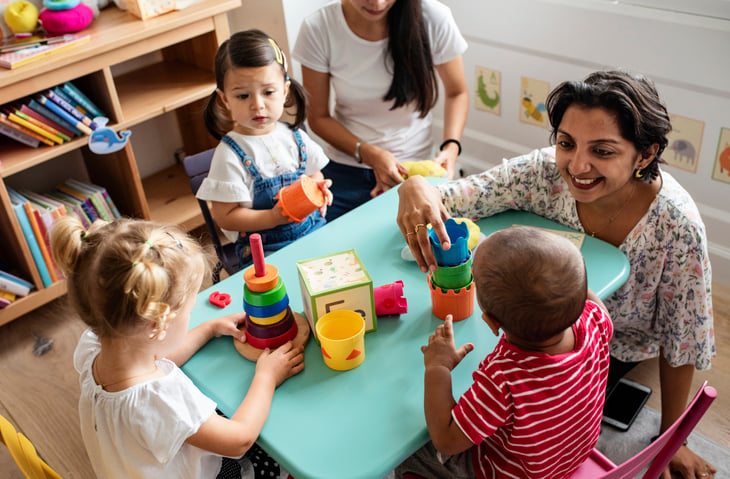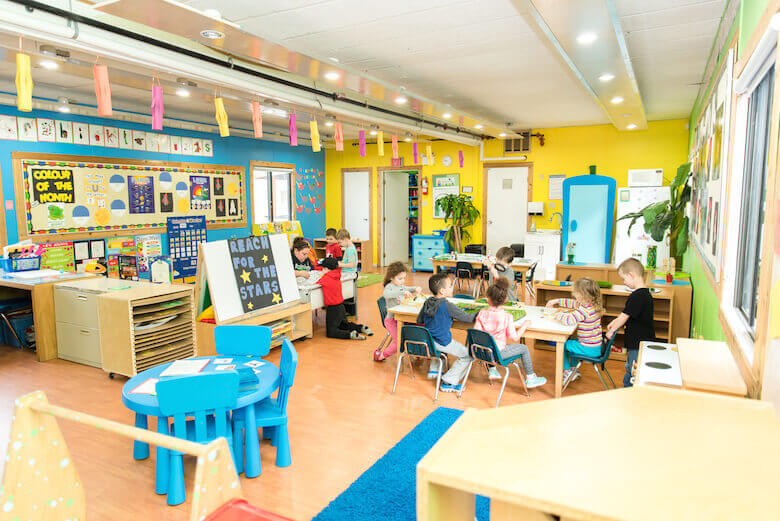Essential Questions To Ask When Searching For Child Care Near Me
The Duty of Day Care in Fostering Social Skills and Early Understanding
Daycare acts as a considerable setting for kids, assisting in vital social communications that advertise early knowing. In this organized setting, kids involve with caregivers and peers, creating important interaction and participation skills. As they browse play and numerous tasks, they find out to fix conflicts and build emotional intelligence. Recognizing the nuances of these interactions exposes the profound influence daycare has on a child's development, forming their future partnerships and scholastic preparedness. What details skills do children acquire in this setting?
The Value of Social Communication in Childcare
While many parents recognize the relevance of very early youth education, the function of social communication in day care is commonly taken too lightly. Daycare settings provide children with important chances to involve with peers, promoting vital social abilities. During these formative years, youngsters learn to navigate numerous social characteristics, such as sharing, cooperation, and dispute resolution. Engaging with diverse age groups and individualities boosts their capability to adapt to various atmospheres and develop compassion in the direction of others.

Building Communication Skills Through Play
Play serves as a powerful tool for youngsters to construct critical interaction abilities in day care settings. Through various play tasks, youngsters involve in conversations, express their thoughts, and discover to listen to others. Role-playing games, for circumstances, urge them to utilize language in different contexts, promoting vocabulary expansion and understanding of social signs.

Narration during play enables youngsters to convey feelings and concepts, helping them establish narrative abilities and self-confidence in their spoken expressions. In general, play not only acts as a delightful pastime however likewise as an essential platform for developing the communication skills needed for effective social communications in later life.
Urging Participation and Teamwork
Cooperation and teamwork are vital abilities that kids can grow in day care atmospheres. With different group activities, such as developing jobs or collaborative games, children discover to share duties and pursue usual goals. These communications foster an understanding of the importance of listening to others, negotiating roles, and endangering when essential.
In childcare setups, caregivers typically produce opportunities for children to take part in synergy by motivating them to take part in group jobs. This not just assists children develop social bonds but additionally cultivates a feeling of belonging and neighborhood.
As they navigate these participating experiences, kids acquire important understandings right into the dynamics of dealing with peers. They find out to appreciate varied point of views and acknowledge that each participant adds uniquely to the group effort. Inevitably, these very early lessons in collaboration and teamwork lay the foundation for healthier partnerships and efficient collaboration in future social and scholastic settings.
Structured Understanding Activities and Cognitive Advancement
Structured learning tasks play an integral function in cultivating cognitive advancement in children (Child Care Center). These tasks, which include challenges, narration, and hands-on experiments, stimulate vital reasoning and problem-solving skills. In a childcare setting, organized understanding encourages kids to involve with their peers, boosting their ability to process info and recognize numerous concepts
Through directed play and interactive jobs, youngsters create fundamental skills such as numeracy and literacy. As an example, tasks focused around numbers can aid children realize mathematical principles, while narration boosts language procurement and comprehension. Additionally, organized discovering enables instructors to evaluate developmental development and dressmaker activities to individual learning requirements.

Incorporating a diverse series of organized activities not only advertises cognitive development however likewise prepares children for future scholastic success. By offering a balanced setting that promotes exploration and query, day care programs play a necessary role fit the cognitive capacities of young learners.
Fostering Emotional Intelligence and Confidence
Psychological knowledge and confidence are crucial components of a youngster's development, matching the cognitive skills cultivated with structured understanding tasks. In day care setups, children are given with chances to reveal their emotions and participate in social interactions, which are vital for developing psychological awareness. With assisted play and team tasks, children find out to identify their feelings, identify those of others, and create compassion.
Interaction with peers and caregivers assists to grow self-esteem and resilience. Favorable reinforcement and inspiration from adults empower youngsters to take threats and face difficulties, cultivating a sense of accomplishment. As they browse social dynamics, kids her response construct confidence in their capacities to communicate, collaborate, and settle problems - Childcare Near Me. This caring setting allows for the gradual development of emotional intelligence, which is vital for future interpersonal relationships and overall health. Therefore, childcare plays a considerable function in cultivating both emotional intelligence and confidence in young kids
Often Asked Concerns
How Can Parents Select the Right Day Care for Their Child?
Parents need to take into consideration elements such as place, staff qualifications, safety standards, curriculum, and assesses from other parents when selecting the ideal day care for their youngster, guaranteeing it lines up with their child's developmental needs and family members values.
What Age Is Finest for Beginning Childcare?

How Does Daycare Effect Children's Behavior at Home?
Daycare usually favorably affects kids's actions in your home by improving social skills, promoting freedom, and encouraging emotional law (Child Care Near Me). As an outcome, kids might show better communication and teamwork, causing even more unified family members characteristics
Are There Any Kind Of Downsides to Childcare Attendance?
Yes, there are drawbacks to daycare participation, including potential splitting up anxiety, exposure to diseases, and irregular caregiving. These variables can impact a kid's emotional wellness and modification in the house, affecting general family characteristics.
Exactly How Can Moms And Dads Support Social Skills Found Out at Daycare?
Moms and dads can sustain social skills discovered at day care by assisting in playdates, urging participating activities, modeling favorable communications, reviewing sensations, and strengthening sharing and interaction in your home, thereby boosting their youngster's social growth and self-confidence.
Day care offers as a substantial atmosphere for young children, facilitating important social communications that promote early learning. Day care setups give children with vital possibilities to engage with peers, cultivating important social skills. Play serves as an effective tool for youngsters to develop vital communication abilities in straight from the source childcare setups. In day care setups, children are given with chances to share their emotions and involve in social interactions, which are vital for constructing psychological awareness. Daycare commonly positively influences kids's behavior at home by improving social skills, advertising independence, and motivating emotional policy.